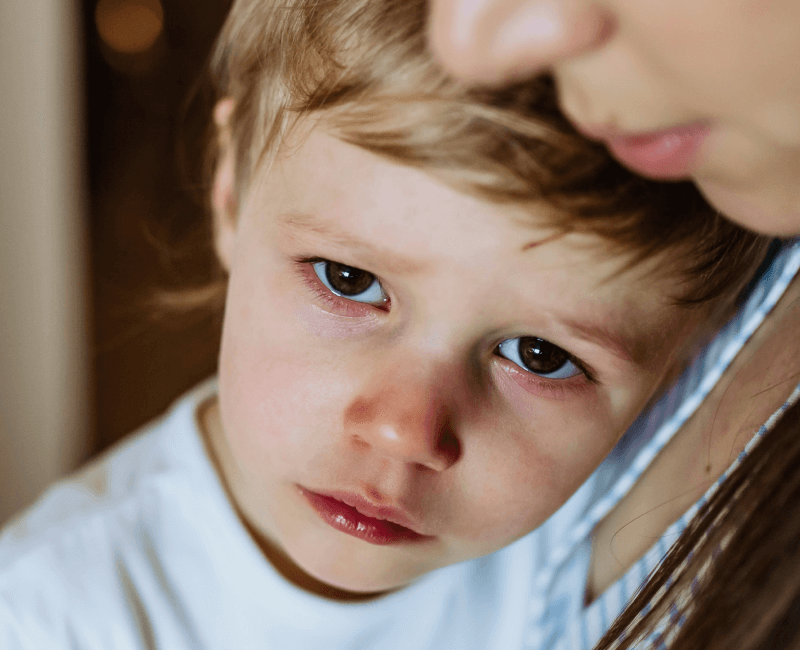How to help your child to start talking
You may be wondering why your child is not talking yet. It may make you feel a little concerned but don't worry, some children can take some time before they start speaking, requiring extra time to develop their language and communication skills.
As you may know, early childhood is an ideal time for helping children develop their language skills. Parents have a unique opportunity to use everyday activities and routines to encourage their child's early language development.
The Talking Years
The early years are known as the 'talking years' because early communication consists of lots of talking. Reading stories, singing songs, playing games, and just talking with your child will help them develop their early communication skills. It is important that talking becomes an enjoyable experience for your child. Developing early language skills is a gradual process that needs lots of early learning opportunities and exposure to daily language.
Early Language Learning
Early language learning refers to skills that allow children to understand and use words for things they see and hear around them. This early vocabulary is simple and basic; babies learn early words like 'bottle', or 'milk' early on. They may also learn words such as 'mummy' or 'daddy'.
Parents can help their child develop their early language skills by talking and communicating with them and using early vocabulary in everyday situations. We all know that babies and children love to imitate what we do; imitating early language is the first step to early language learning, so it is important to be aware of what words we are saying around our children.
What can you do to help?
There are many things that you can do every day to support your child's language skills and help them start talking. Here are some simple strategies that you can use.
Acknowledge communicative attempts
When your child makes early communicative attempts, acknowledge the attempt by simply modelling it back to them or using a word you think they are trying to say, and then give them your full attention. Pay attention to your child's sounds and early language attempts. If your child responds with gestures or pointing when you ask for something or make a comment, you know your child can understand you
Model and repeat vocabulary
Try to use words as often as you can so that your child will know what they mean without having to think hard about it. The more a child hears a word, the more likely they will store and retain it
Keep it simple
When talking to your child, try not to use long sentences as it might be difficult for them to follow and understand what you are saying. Keep sentences simple and short and pause between each word, giving your child time to respond or use words that they know
Play games
Play is a great way to encourage early learning and language skills as children love using their imagination and playing with you. Play games that encourage early communication, like peek-a-boo!
Sing songs
Singing nursery rhymes to your child early on will play a big role in early communication skills. Reading books and singing songs early on become part of children's early home literacy environment, providing more opportunities for vocabulary learning and developing those pre-literacy skills
Read stories
Reading to your child is very important for early learning. Books are a great way of sharing early experiences and promoting early language skills, so read regularly to your child every day
Use early experiences
Describe early experiences with keywords. For example, you could say 'Look! The train is coming' or 'Look! there's a dog'. This strategy allows your child to understand language in real-life situations they can see and hear, so they can link words with experiences
Embed language into routines
Use words in routines and activities with your child, for example, you could use words during bath time by saying 'wash' or 'splash'. You can also use vocabulary when talking about objects that are often used in the home, for example 'brush teeth' when brushing their teeth, or 'eat dinner' during mealtimes
Make it fun
Make words sound more interesting by using voice, pitch, and tone. For example, you could say words in a high-pitched, excited way, or in a loud, soft, or quiet way
There are many ways to help your child start talking and we hope this blog post has provided you with some helpful tips. For more tips on supporting early language development, please see our blog on supporting language and communication skills at home.
Let us know if we can be of any help as you work on building your child’s skills by getting in touch!
- General Speech & Language (24)
- Speech and Language Therapy (21)
- Social Communication (11)
- Speech Sounds (7)
- Autism Support (4)
- Language Delay/Disorder (3)
- SEMH (3)
- Safeguarding (3)
- AAC (2)
- Autism (2)
- Relationship Issues (2)
- ADHD Support (1)
- Absenteeism (1)
- Classroom Behaviour (1)
- Cleft Lip/Palate (1)
- Counselling (1)
- Funding (1)
- General mental health (1)
- Generalised anxiety (1)
- MATs (1)
- OCD (1)
- Phobias (1)
- Primary Schools (1)
- SENCOs (1)
- School Issues (1)
- Secondary & Sixth Form Schools (1)
- Stammering (1)
- Trauma (1)
You may also like
These related stories

5 ways to help your child listen

The connection between language and mental health difficulties
